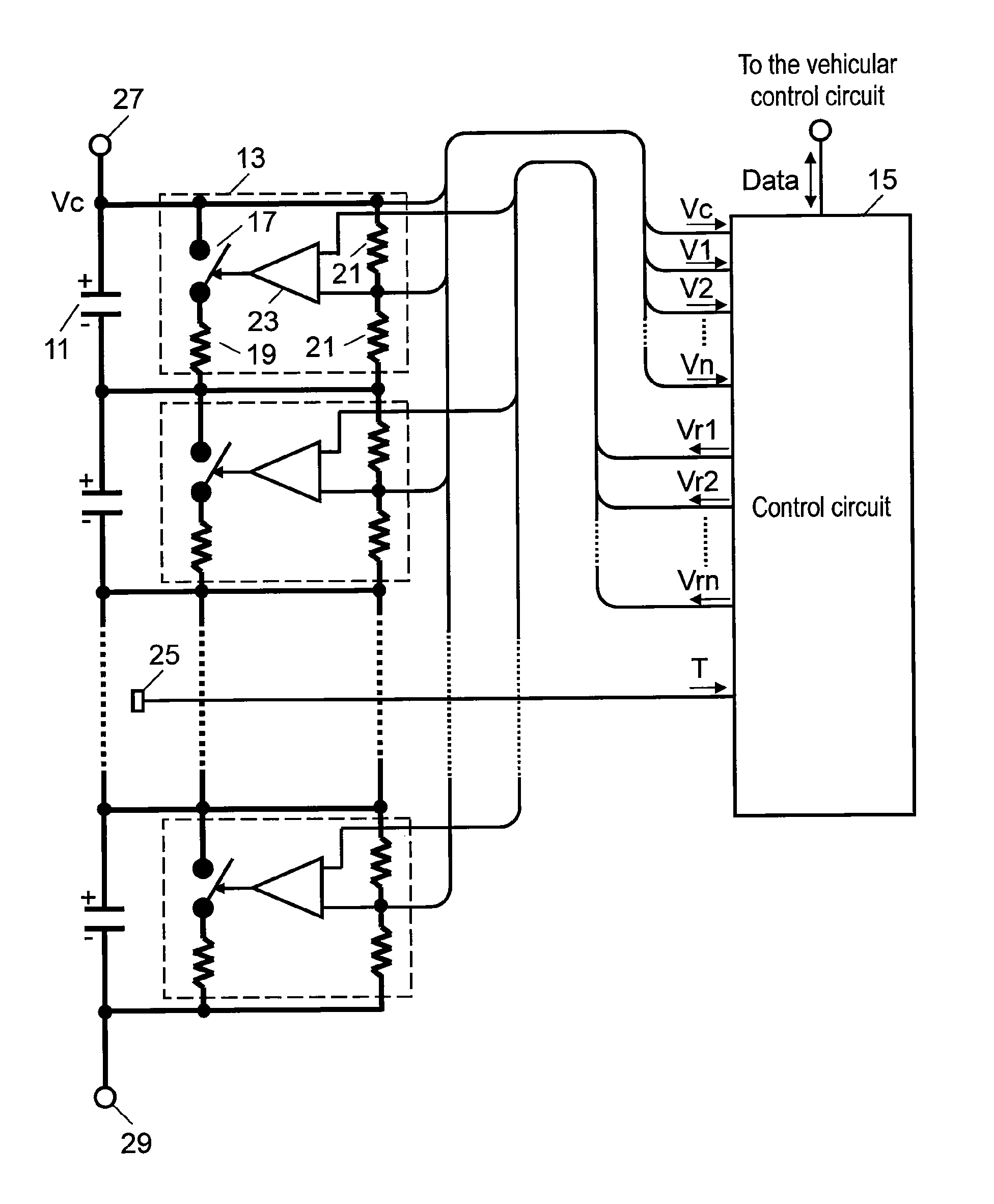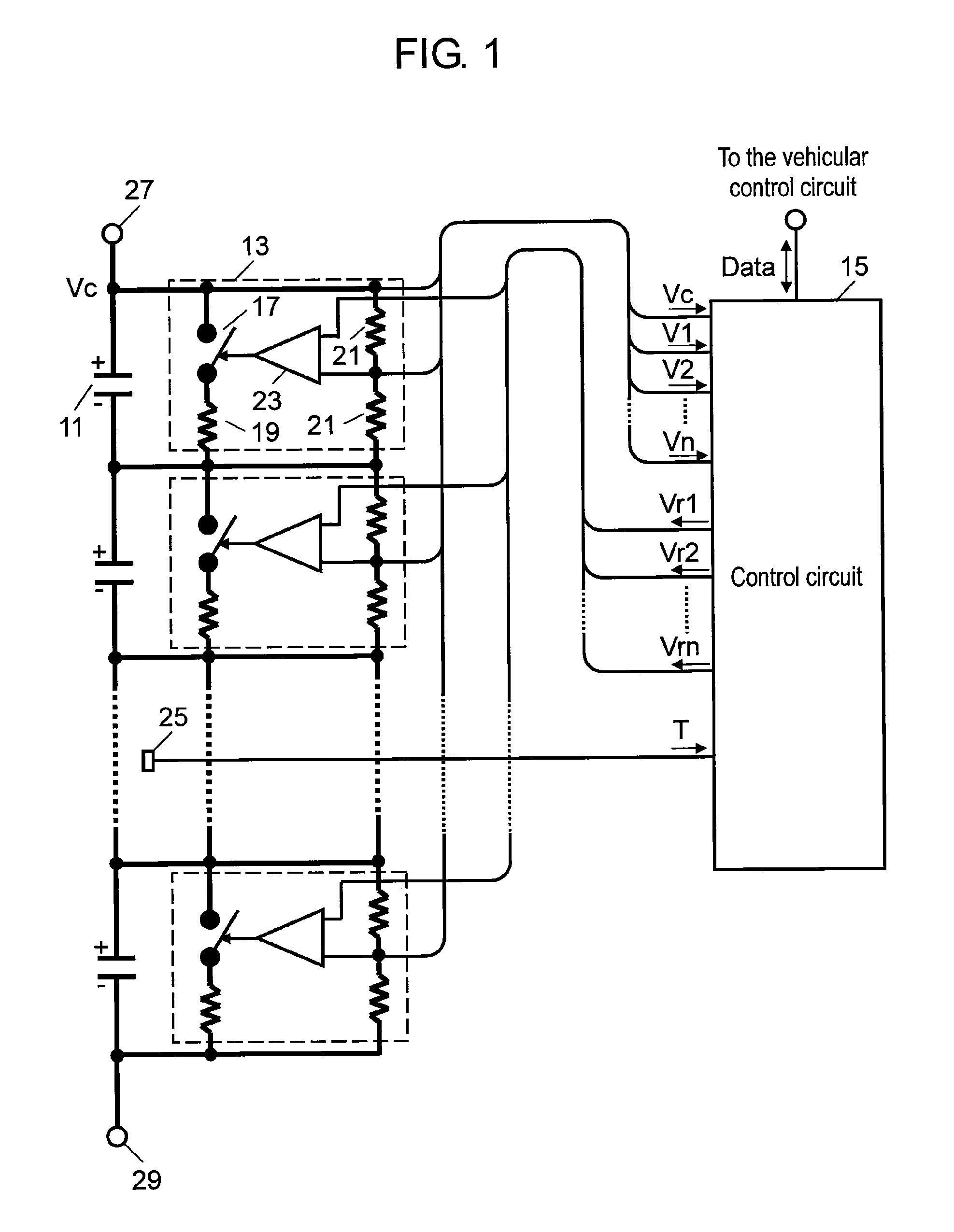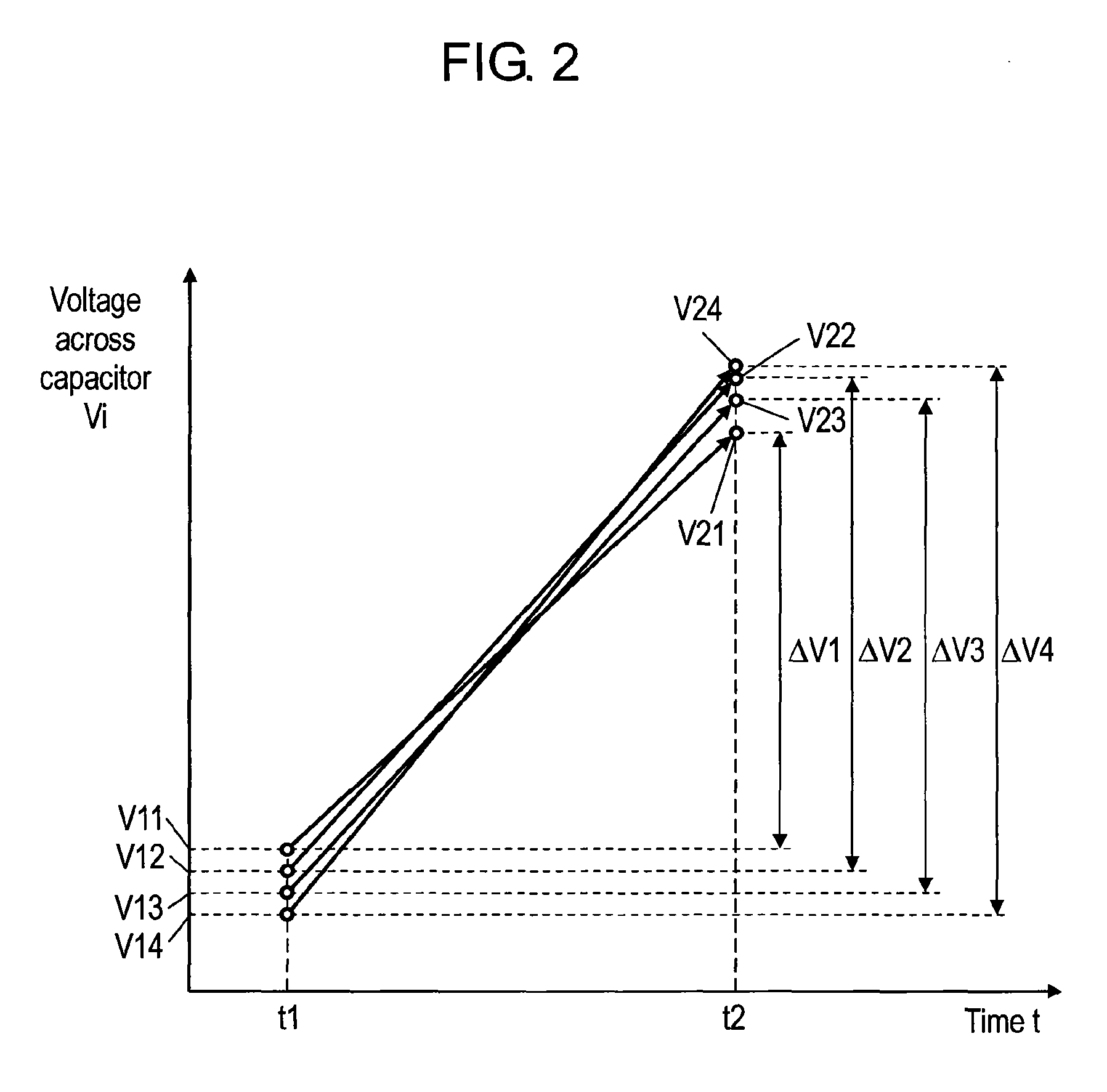Electricity accumulating device
a technology of accumulating devices and capacitors, applied in the direction of electric variable regulation, process and machine control, instruments, etc., can solve the problems of shortening the life of the capacitor, insufficient acceleration, and the possibility of changing the characteristics of the battery, so as to achieve the effect of simple operation and extended life of the capacitor
- Summary
- Abstract
- Description
- Claims
- Application Information
AI Technical Summary
Benefits of technology
Problems solved by technology
Method used
Image
Examples
first exemplary embodiment
[0036]FIG. 1 is a block circuit diagram of an electricity accumulating device according to a first exemplary embodiment of the present invention. As shown in FIG. 1, the electricity accumulating device includes capacitors 11 connected in series. In the drawing, thick lines represent electrical wires, and thin lines represent signal wires. Capacitors 11 in the present first exemplary embodiment are electric double layer capacitors having a large capacitance. Capacitors 11 may alternatively be connected in series-parallel according to the power specification required. In this case, capacitors connected in parallel are treated as one capacitor 11 so as to make them have an equivalent circuit of capacitors 11 shown in FIG. 1. Therefore, the following description is based on the assumption that each capacitor 11 can be either one or a plurality of capacitors connected in parallel. It is possible that the end terminals of series-connected capacitors 11 in the electricity accumulating devi...
second exemplary embodiment
[0070]FIG. 4 is a flowchart showing a process for determining the balanced voltage of each capacitor in an electricity accumulating device according to a second exemplary embodiment of the present invention. The electricity accumulating device of the present second exemplary embodiment has the same structure as that of the first exemplary embodiment shown in FIG. 1, and hence, the description thereof will be omitted. The present second exemplary embodiment is characterized by its operation, which will be described in detail as follows.
[0071]In FIG. 4, when the vehicle is started or in operation, control circuit 15 reads the present voltage V1i across each capacitor 11 at a time t1, which is during the non-charge-or-discharge period of capacitors 11, and stores them in a memory embedded in control circuit 15. In this case, the voltage V1i across each capacitor 11 is subjected to temperature correction in the same manner as in the first exemplary embodiment. The time t1 is not stored ...
third exemplary embodiment
[0086]FIG. 5 is a graph showing the change in the voltage across each capacitor from time t1 to time t2 in an electricity accumulating device according to a third exemplary embodiment of the present invention.
[0087]The electricity accumulating device of the present third exemplary embodiment has the same structure as that of the first exemplary embodiment shown in FIG. 1, and hence, the description thereof will be omitted. The present third exemplary embodiment is characterized by its operation, which will be described in detail as follows. In FIG. 5, the horizontal axis represents the time “t”, and the vertical axis represents the voltage Vi across each capacitor 11. In the case of a hybrid vehicle, several hundred capacitors 11 are connected in series as mentioned above, however, in the following description, only four capacitors 11 are connected in series for easier explanation as in the first exemplary embodiment. Thus, the number “n” of capacitors 11 is 4, and the subscript “i”...
PUM
 Login to View More
Login to View More Abstract
Description
Claims
Application Information
 Login to View More
Login to View More - R&D
- Intellectual Property
- Life Sciences
- Materials
- Tech Scout
- Unparalleled Data Quality
- Higher Quality Content
- 60% Fewer Hallucinations
Browse by: Latest US Patents, China's latest patents, Technical Efficacy Thesaurus, Application Domain, Technology Topic, Popular Technical Reports.
© 2025 PatSnap. All rights reserved.Legal|Privacy policy|Modern Slavery Act Transparency Statement|Sitemap|About US| Contact US: help@patsnap.com



